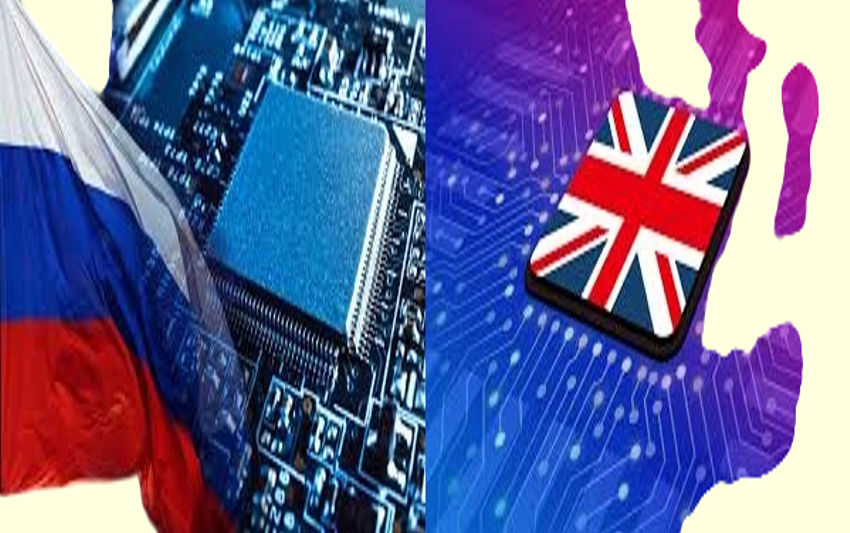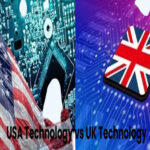Technology plays a crucial role in shaping a nation’s economic growth, military strength, and global influence. Two major players in the tech industry—Russia and the United Kingdom (UK)—have distinct approaches to technological development. While the UK is known for its innovation-driven economy and strong private sector involvement, Russia focuses on state-backed initiatives, particularly in defense and energy technology. This article compares the technological landscapes of Russia and the UK, examining their strengths, weaknesses, and key differences.
1. Research and Innovation
UK: A Leader in Tech Startups and AI
The UK is a global leader in research and innovation, particularly in artificial intelligence (AI), fintech, and biotechnology. Home to prestigious universities like Oxford and Cambridge, the UK fosters a strong startup culture, with London being a major tech hub. The government supports innovation through initiatives like Tech Nation and investments in AI research. Companies like DeepMind (acquired by Google) and ARM Holdings highlight the UK’s dominance in cutting-edge technology.
Russia: Strong in Cybersecurity and Aerospace
Russia excels in cybersecurity, aerospace, and nuclear technology. With a strong emphasis on state-funded research, Russia has produced advanced military tech, including hypersonic missiles and satellite systems. Institutions like Skolkovo Innovation Center (Russia’s “Silicon Valley”) and Rosatom (nuclear energy giant) drive innovation. However, Western sanctions have limited Russia’s access to some high-tech components, pushing the country toward self-reliance in semiconductor and software development.
2. Defense and Military Technology
UK: Advanced but Smaller-Scale Defense Tech
The UK invests heavily in defense technology, with companies like BAE Systems and Rolls-Royce leading in aerospace and naval systems. The UK collaborates closely with NATO and the U.S., integrating AI and unmanned systems into its military. However, its defense budget is smaller than Russia’s, focusing more on quality over quantity.
Russia: A Global Military Tech Powerhouse
Known for its S-400 missile systems, Su-57 stealth aircraft, and hypersonic weapons like the Avangard, Russia is a significant arms exporter. The country prioritizes military R&D, often outpacing Western nations in certain areas. However, sanctions and economic challenges have strained Russia’s ability to mass-produce advanced tech at scale.
3. Energy Technology
UK: Renewable Energy and Offshore Wind
The UK is a leader in renewable energy, particularly offshore wind farms, and aims for net-zero emissions by 2050. Companies like **BP and Shell are transitioning toward green energy, investing in hydrogen and carbon capture technologies.
Russia: Dominance in Oil, Gas, and Nuclear
With Gazprom and Rosneft in possession of enormous oil and gas reserves, Russia continues to be a global energy behemoth. It also leads in nuclear technology, with Rosatom building reactors worldwide. However, its reliance on fossil fuels and slower adoption of renewables could be a long-term weakness.
4. Digital Economy and IT Sector
UK: Fintech and Global Software Influence
With businesses like Revolut and TransferWise, the UK has one of the strongest fintech sectors in the world. London’s stock exchange and favorable regulations attract tech investments. The UK also has a thriving gaming and software industry.
Russia: Strong in Programming but Limited by Sanctions
Russia produces top-tier software engineers and cybersecurity experts (e.g., Kaspersky Lab). However, sanctions and brain drain (many IT professionals leaving due to political reasons) have impacted growth. Domestic alternatives like Yandex and VK replace Western tech but lack global reach.
Conclusion
The UK and Russia have contrasting technological strength the UK excels in innovation, AI, and fintec, while Russia leads in military tech, cybersecurity, and energy
The UK benefits from a free-market economy and global collaborations, whereas Russia relies on state-driven initiatives and faces challenges due to geopolitical tensions.
In the long run, the UK’s diversified tech ecosystem may give it an edge, while Russia’s focus on self-sufficiency could either strengthen its tech independence or isolate it further from global advancements. Both nations will continue to play key roles in shaping the future of technology, albeit in very different ways.
Russia Technology vs. UK Technology: A Comparative Analysis
Technology plays a crucial role in shaping a nation’s economic growth, military strength, and global influence. Two major players in the tech industry—Russia and the United Kingdom (UK)—have distinct approaches to technological development. While the UK is known for its innovation-driven economy and strong private sector involvement, Russia focuses on state-backed initiatives, particularly in defense and energy technology. This article compares the technological landscapes of Russia and the UK, examining their strengths, weaknesses, and key differences.
1. Research and Innovation
UK: A Leader in Tech Startups and AI
The UK is a global leader in research and innovation, particularly in artificial intelligence (AI), fintech, and biotechnology. Home to prestigious universities like Oxford and Cambridge, the UK fosters a strong startup culture, with London being a major tech hub. The government supports innovation through initiatives like Tech Nation and investments in AI research. Companies like DeepMind (acquired by Google) and ARM Holdings highlight the UK’s dominance in cutting-edge technology.
Russia: Strong in Cybersecurity and Aerospace
Russia excels in cybersecurity, aerospace, and nuclear technology. With a strong emphasis on state-funded research, Russia has produced advanced military tech, including hypersonic missiles and satellite systems. Institutions like Skolkovo Innovation Center (Russia’s “Silicon Valley”) and Rosatom (nuclear energy giant) drive innovation. However, Western sanctions have limited Russia’s access to some high-tech components, pushing the country toward self-reliance in semiconductor and software development.
2. Defense and Military Technology
UK: Advanced but Smaller-Scale Defense Tech
The UK invests heavily in defense technology, with companies like BAE Systems and Rolls-Royce leading in aerospace and naval systems. The UK collaborates closely with NATO and the U.S., integrating AI and unmanned systems into its military. However, its defense budget is smaller than Russia’s, focusing more on quality over quantity.
Russia: A Global Military Tech Powerhouse
Known for its S-400 missile systems, Su-57 stealth aircraft, and hypersonic weapons like the Avangard, Russia is a significant arms exporter. The country prioritizes military R&D, often outpacing Western nations in certain areas. However, sanctions and economic challenges have strained Russia’s ability to mass-produce advanced tech at scale.
3. Energy Technology
UK: Renewable Energy and Offshore Wind
The UK is a leader in renewable energy, particularly offshore wind farms, and aims for net-zero emissions by 2050. Companies like **BP and Shell are transitioning toward green energy, investing in hydrogen and carbon capture technologies.
Russia: Dominance in Oil, Gas, and Nuclear
With Gazprom and Rosneft in possession of enormous oil and gas reserves, Russia continues to be a global energy behemoth. It also leads in nuclear technology, with Rosatom building reactors worldwide. However, its reliance on fossil fuels and slower adoption of renewables could be a long-term weakness.
4. Digital Economy and IT Sector
UK: Fintech and Global Software Influence
With businesses like Revolut and TransferWise, the UK has one of the strongest fintech sectors in the world. London’s stock exchange and favorable regulations attract tech investments. The UK also has a thriving gaming and software industry.
Russia: Strong in Programming but Limited by Sanctions
Russia produces top-tier software engineers and cybersecurity experts (e.g., Kaspersky Lab). However, sanctions and brain drain (many IT professionals leaving due to political reasons) have impacted growth. Domestic alternatives like Yandex and VK replace Western tech but lack global reach.
Conclusion
The UK and Russia have contrasting technological strength the UK excels in innovation, AI, and fintec, while Russia leads in military tech, cybersecurity, and energy
The UK benefits from a free-market economy and global collaborations, whereas Russia relies on state-driven initiatives and faces challenges due to geopolitical tensions.
In the long run, the UK’s diversified tech ecosystem may give it an edge, while Russia’s focus on self-sufficiency could either strengthen its tech independence or isolate it further from global advancements. Both nations will continue to play key roles in shaping the future of technology, albeit in very different ways.


